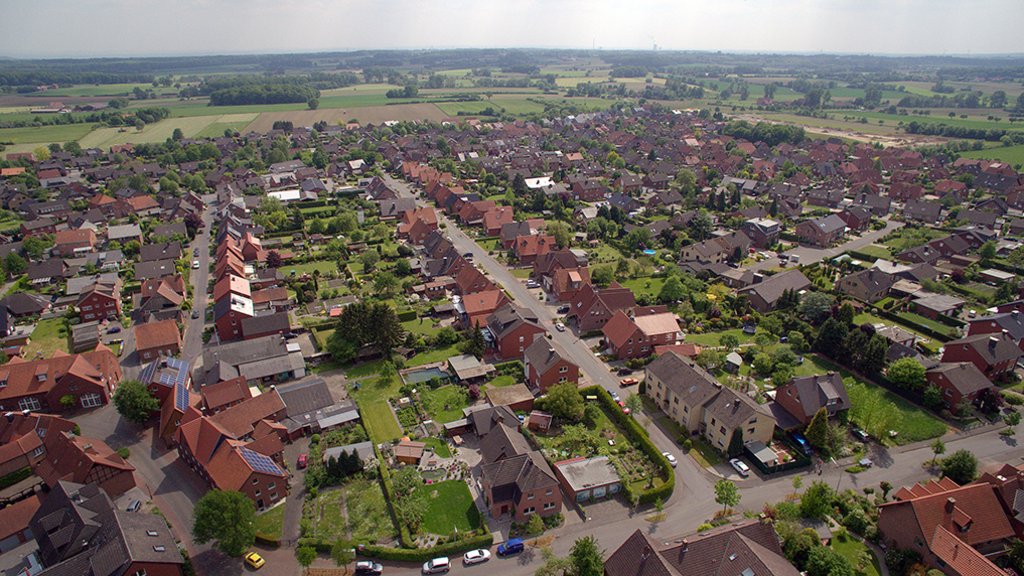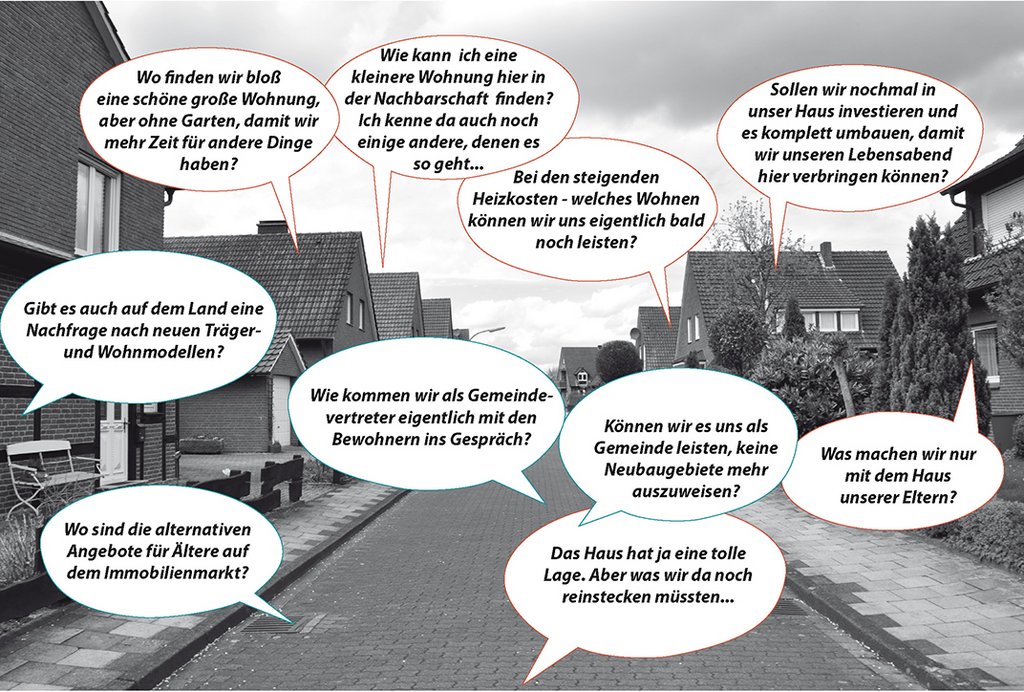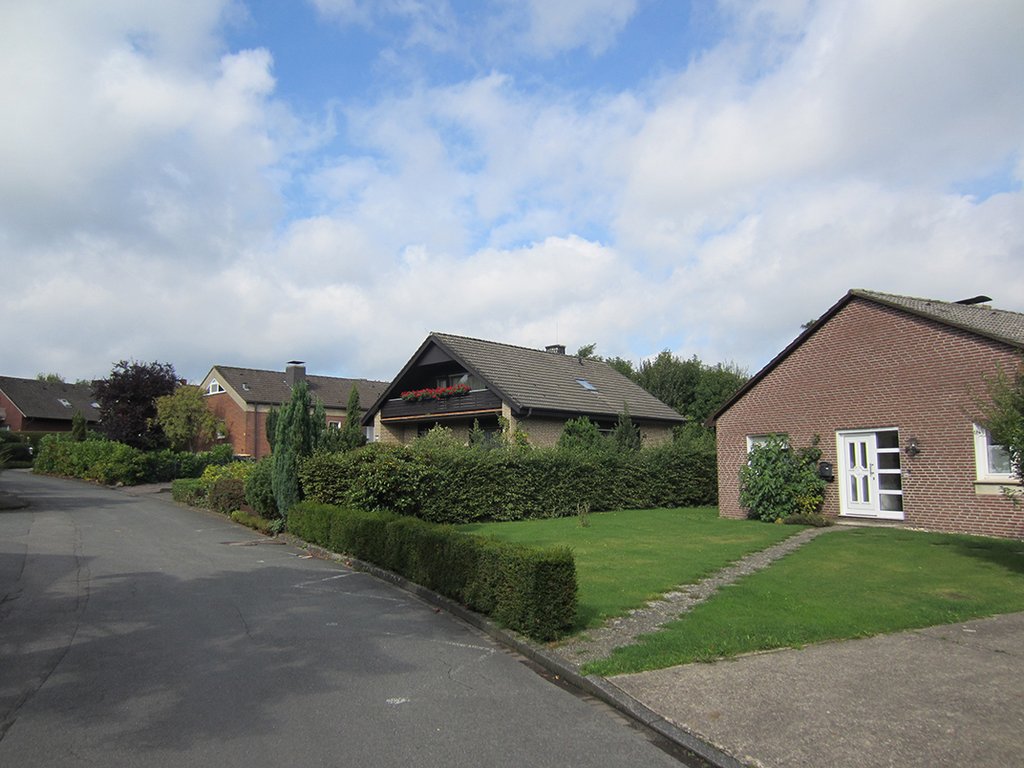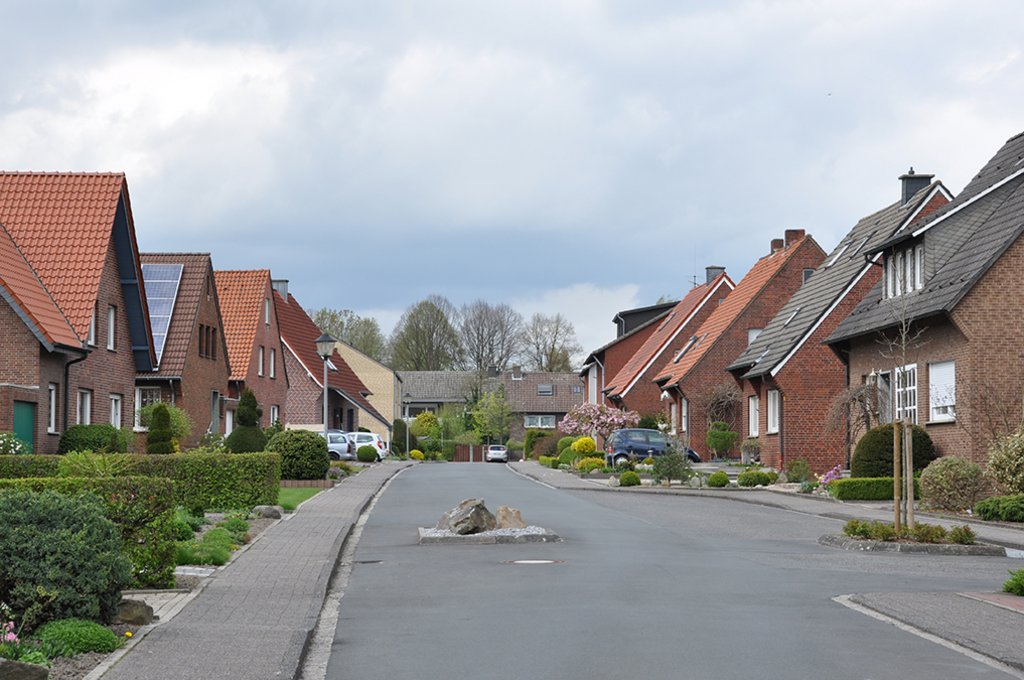Structural development programme “ZukunftsLAND” in the Münsterland region
Regionale 2016




Regionale 2016 is currently being held in western Münsterland under the motto “ZukunftsLAND” (FutureLAND). The structural development programme of the federal state North Rhine-Westphalia is initiating projects that make a contribution towards sustainable development in the region. One central strategic theme in this respect are the large residential areas built between the 1950s and 1970s. As is the case all over West Germany, the cities and municipalities in western Münsterland grew considerably, especially in the post-war decades – and with a special focus on individual living on one’s own property. The housing estates that emerged in this era surround the town centre today like the age rings of a tree trunk. The early estates with single family homes in particular are facing increasing change here and elsewhere. While they provide special spatial and building qualities and are located close to the centres of towns and villages, at the same time many of the buildings from this era have a considerable need for energy optimisation, and issues such as living comfort and barrier-free design are important considering today’s living requirements and an aging group of residents. As many of the residential estates were built by home owners from one generation, the need to adapt properties and a changing ownership situation often go hand in hand.
Shrinkage trends are not as strong in western Münsterland today as they are in many other rural regions, and properties lying vacant for long periods are still an exception. In view of the apparent future demographic development, however, there appears to be a danger that the older residential areas, which are often well-situated within the urban fabric, might experience significant destabilising vacancies.
That is why the region has undertaken, as part of the Regionale 2016, to become a model region for this topic. Since the beginning of 2012, concrete projects have been used to develop and try out – in cooperation with many stakeholders – strategies with which existing residential estates can be further developed to cope with the future. On the one hand, this should serve to give direction to the expected “remaining growth” in the existing estates. On the other hand, a “toolbox” is to be developed, which should provide stakeholders in the region with possible practical approaches. The aim is to cope at an early stage with the challenges emerging in the older residential areas in such a way that problems do not arise in the first place or can at least be mitigated to some extent.
This project was presented as part of the 2015 Baukultur Workshops in Frankfurt.
| Uses | Planning culture Rural spaces |
